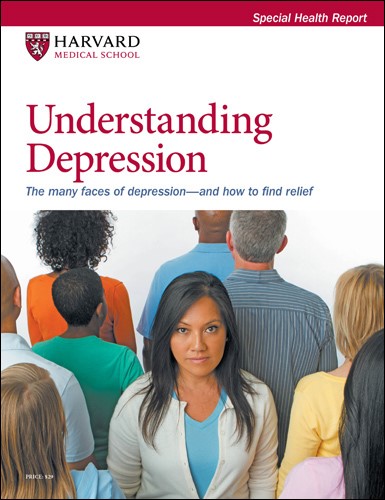Expectant mothers can rest easier about taking antidepressants
Research we're watching
- Reviewed by Toni Golen, MD, Editor in Chief, Harvard Women's Health Watch; Editorial Advisory Board Member, Harvard Health Publishing; Contributor

Some new research findings offer reassurance for pregnant women who take antidepressants. The large, far-reaching analysis found no indication that these drugs could interfere with their child's future brain development or behavior.
The study, published online Oct. 3, 2022, by JAMA Internal Medicine, compared data from nearly 146,000 women who took antidepressants when pregnant with data from more than three million women who did not take these drugs during pregnancy. Researchers tracked the children's health for up to 14 years. Unlike older studies — whose results were considered limited by various factors — the new analysis indicated antidepressant use during pregnancy wasn't linked to autism, attention deficit hyperactivity disorder, behavior disorders, or problems with speech, language, learning, or coordination.
About one in five pregnant women copes with a mental health condition, researchers said, and some decide to stop taking antidepressants when they learn they're pregnant. However, expectant mothers who take these medications should talk to their doctor before taking this step. Not treating a mother's mental health disorder has been linked to serious problems, including stillbirth, premature birth, low birth weight, and poor bonding after birth.
Image: © Justin Paget/Getty Images
About the Author

Maureen Salamon, Executive Editor, Harvard Women's Health Watch
About the Reviewer

Toni Golen, MD, Editor in Chief, Harvard Women's Health Watch; Editorial Advisory Board Member, Harvard Health Publishing; Contributor
Disclaimer:
As a service to our readers, Harvard Health Publishing provides access to our library of archived content. Please note the date of last review or update on all articles.
No content on this site, regardless of date, should ever be used as a substitute for direct medical advice from your doctor or other qualified clinician.
















